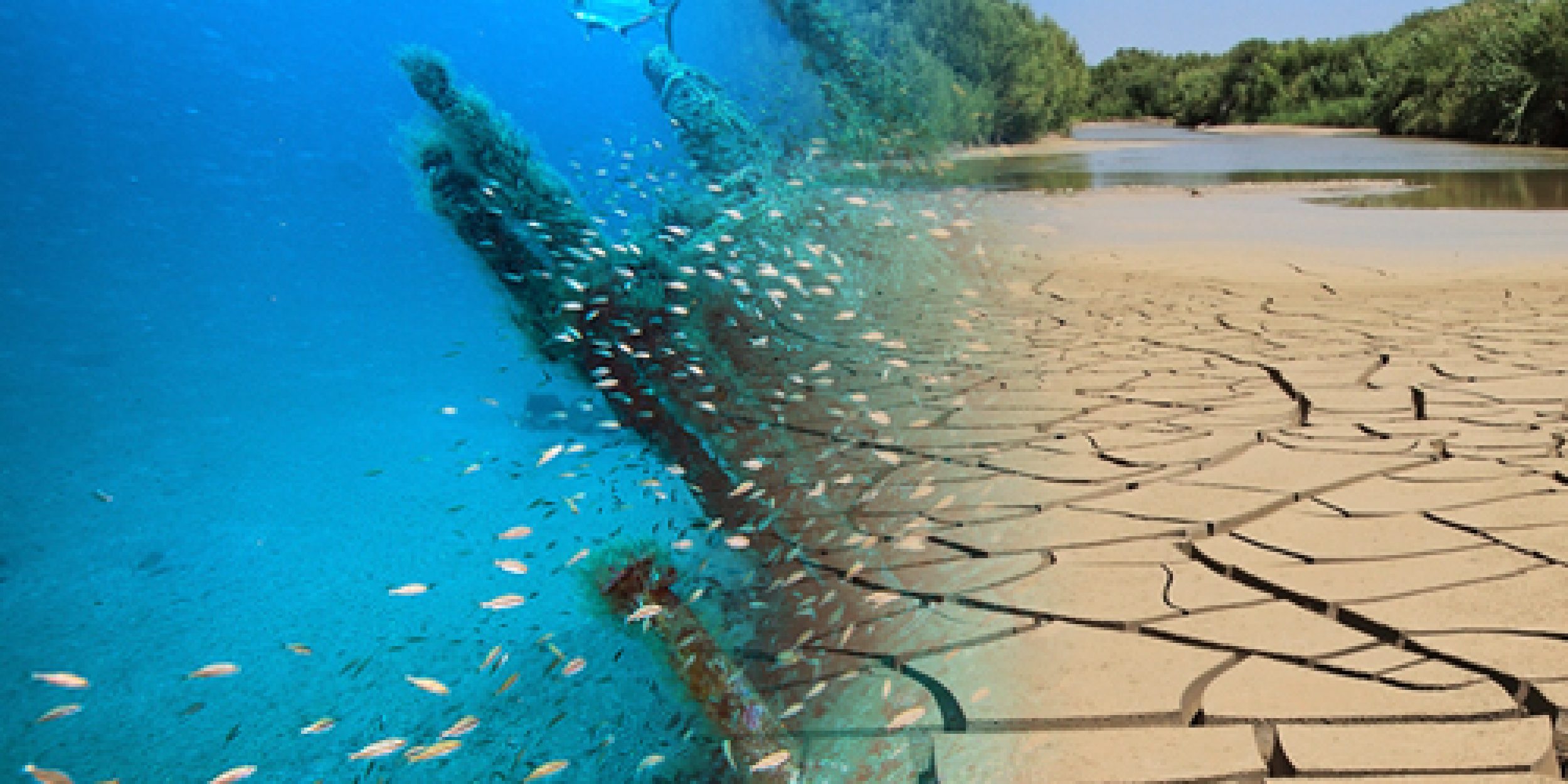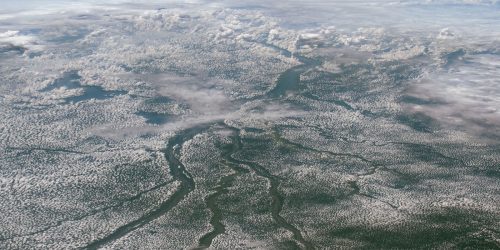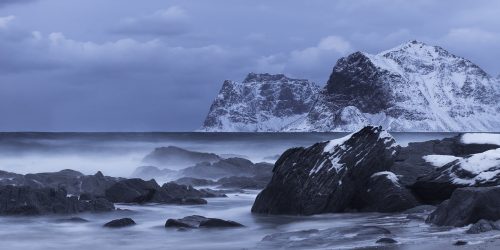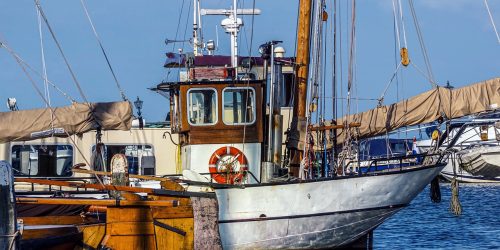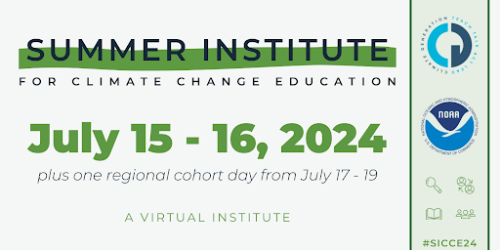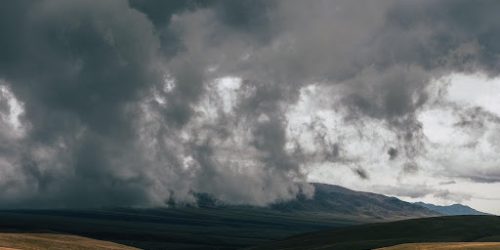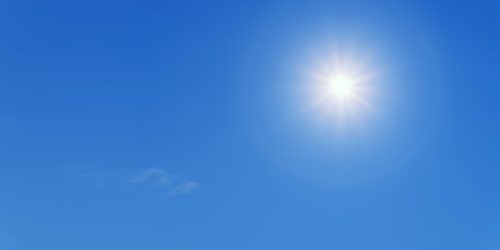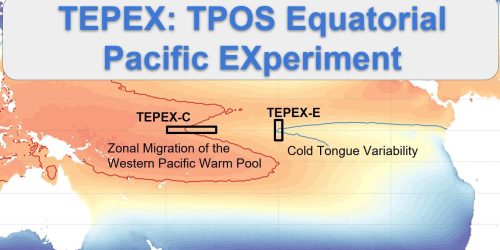Important Information and Updates
NOFO at a Glance
General Information
CPO supports competitive research through four major program areas: Earth System Science and Modeling (ESSM); Climate and Societal Interactions (CSI); Communication, Education and Engagement (CEE); and the National Integrated Drought Information System (NIDIS). Through this announcement, CPO is seeking applications for six individual competitions in FY23. Several of these competitions are relevant to high-priority climate risk areas. CPO is organizing some of its activities around these areas to improve science understanding and/or capabilities that result in user-driven outcomes. Four climate risk areas of particular interest to CPO are: Coastal Inundation, Marine Ecosystems, Water Resources, and Extreme Heat. Visit CPO’s Climate Risk Areas Initiative for more information.
Prior to submitting applications, investigators are highly encouraged to learn more about CPO and its programs, as well as specific program priorities for FY22. In addition, interactions, partnerships, or collaborations with NOAA Laboratories and Cooperative Institutes are encouraged.
This information, along with the names and contact information of relevant Competition managers, is provided below.
CPO’s grant programs manage a competitive process through a NOFO announcement to make awards supporting high-quality research conducted across the United States and internationally on the most urgent climate science questions. While each program area has its own focus, together they advance understanding of Earth’s climate system through interdisciplinary, integrated scientific research, and leverage the resulting knowledge, data, and systems to enhance society’s ability to plan and respond to climate variability and climate change. Toward this end, CPO also supports partnerships that build end-to-end pipelines of information (e.g., integrated information systems) flowing from scientists to decision-makers.
Links to Full NOFO and Grants.gov Listing
Important Dates/Deadlines
Letters of Intent
Letters of intent (LOIs) should be received by email by 5:00 p.m. Eastern Time on September 1, 2022.
A response to the LOI from the Competition Manager (e-mail or letter) will be sent to the investigator within four weeks after the LOI’s due date encouraging or discouraging a full application based on its relevance to the targeted competition.
Full Applications
Full applications must be received by 5:00 p.m. Eastern Time, November 21, 2022.
Applications received after these dates and times will not be considered for funding.
Applications must be submitted via http://www.grants.gov. For applications submitted through grants.gov, the basis for determining timeliness is the receipt notice issued by http://www.grants.gov, which includes the date and time received.
Applicants without internet access
Please contact the CPO Grants Manager Diane Brown by mail at NOAA Climate Program Office (R/CP1), SSMC3, Room 12734, 1315 East-West Highway, Silver Spring, MD 20910 to obtain an application package. Please allow two weeks after receipt for a response. Hard copy submissions will be date and time stamped when they are received in the Climate Program Office.
Emailed or faxed copies of applications will not be accepted.
For Federal Investigators
Federal lead investigators who wish to apply to this Announcement of Opportunity must prepare a proposal according to the NOFO guidelines and submit the proposal to the program manager directly, instead of to http://www.grants.gov. Federal co-investigators must submit a proposal identical to the proposal lead’s but with personalized budget information.
Letters of Intent should be received by Competition Manager by 5 p.m. Eastern Time, September 1, 2022.
Full applications must be received by 5:00 p.m. Eastern Time, November 21, 2022.
Where to Submit
Application packages:
Visit Grants.gov and click on Apply for Grants. You may also directly view the Grants.gov listing here.
Notice of Funding Opportunity Number:
Applicants without Internet access:
Please send mail to:
Diane Brown
CPO Grants Manager
NOAA Climate Program Office (R/CP1), SSMC3, Room 12734
1315 East-West Highway
Silver Spring, MD 20910
Please allow two weeks after receipt for a response.
Questions/Who to Contact
Diane Brown, CPO Grants Manager
Additional Links
Webinars/Events
List Of Competitions
NOAA is accepting individual applications for one competition.
AC4 – Methane Across Scales
In FY23, the AC4 Program is soliciting research proposals focused on methane measurements and modeling across spatial and temporal scales, building on NOAA’s decades long expertise in measuring methane and other greenhouse gases, as well as other AC4 specific investments. Research priorities of this solicitation include urban, regional and global methane concentrations and fluxes, especially as relevant for monitoring, reporting and verification of emissions.
MAPP-NIDIS – Science for the 21st Century Western U.S. Hydroclimate
In FY23, through this solicitation, MAPP is seeking proposals for research that can advance model-based understanding, monitoring, prediction, predictability, and model representation of drought. Research projects that are relevant to the efforts taken by states, regional entities, responsible water management agencies, and stakeholders to anticipate and manage water resources in the face of climate variability and change are encouraged. There is a need for research that can help discriminate between long-term aridity vs. serial drought events vs. isolated drought events and improve understanding of how the propensity for and drivers of drought in the west are changing. There is also a need to apply models to understand and anticipate critical thresholds for water availability in the West. Connecting this research to real-world decisions, context, and operational activities is critical.
MAPP – Climate Futures: Projections for Societally-Relevant Problems
For FY23, the MAPP program invites proposals that use data from the SPEAR system in combination with other large ensemble and projection datasets in R&D; projects exploring the representation of processes and phenomena that serve as sources of predictability, the fidelity of SPEAR’s simulation of high-impact extreme events, and applications of SPEAR toward near-term climate projections (i.e., timescales up to 50 years in the future). Proposals may also apply SPEAR and other datasets toward the development of experimental projection products using existing SPEAR forecast variables. Such projects should focus on phenomena or projections for which the expectation of useful model performance and fidelity may exist, based on existing research. Proposals may include offline or secondary modeling or statistical work to extend SPEAR projections into different systems (e.g., the atmospheric boundary layer or coastal regimes) or to apply bias correction, and may apply machine learning or other artificial intelligence approaches. In addition to SPEAR data, proposals should use data from other projection datasets (e.g., CMIP6), or other large ensemble datasets as part of the proposed work. Use of projection and large ensemble data from other U.S. modeling centers is encouraged. When possible, proposals are encouraged to link their evaluations back to recommendations for model and system improvements, for example, through published journal articles, collaborations with GFDL staff, or contributions to the Model Diagnostics Task Force package.
COM – Precipitation-related Dataset Development and Analysis
In Fiscal Year 2023, the COM program solicits proposals that will exploit NOAA’s (and other Federal or publicly available) existing surface (ocean, land, ice), atmosphere, precipitation and related observation-based data (inclusive of in situ, remote sensing, and paleoclimate data) to advance NOAA’s PPGC strategy, fill knowledge gaps (e.g. highlighted in the reports listed above), and ultimately reduce societal impacts from an intensifying water cycle.
ERB, AC4 & CVP – Applications of satellite data to aerosol research
- Competition #: 3076729
Program Manager(s):
- Victoria Breeze
In FY23, the ERB, AC4, and CVP programs, collaborating with NOAA’s National Environmental Satellite, Data, and Information Service (NESDIS), invite proposals on satellite applications focused on one or more of the following:
Application of aerosol satellite data in cloud-aerosol interactions, quantifying the composition and fate of wildfire smoke, air quality forecasting, Earth’s radiative budget, health impact studies, , cloud processes, and/or other process understanding that leads to improvements of physics and chemistry in models used for weather prediction and climate projections.
CAFA – Promoting resilience and adaptation of U.S. marine fisheries and fishing communities
- Competition #: 3076744
Program Manager(s):
- Jennifer Dopkowski
For FY23, the CAFA Program is soliciting two types of proposals:
- Multidisciplinary projects to better understand the impacts of climate variability and change on marine ecosystems and evaluate strategies and tools to promote resilience and adaptation of fish stocks, fisheries, and the communities and economies that depend on them.
- Projects to support participatory research that advances understanding of climate adaptation and resilience of frontline fishing communities (i.e., communities dependent upon fishing economically, socially, and culturally).
Proposals should be interdisciplinary efforts that integrate climate, ecological, and/or social science research; incorporate principles of diversity, equity, inclusion, and accessibility; and engage with stakeholders and/or communities.


